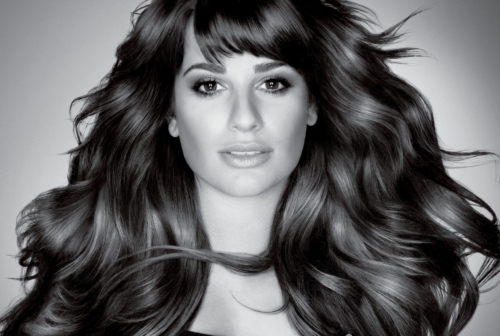Tag Archives: L’Oreal
Grey hair is No 1 looks worry for men
 London: Hair colour is the number one appearance concern for men today, according to a new UK study.
London: Hair colour is the number one appearance concern for men today, according to a new UK study.
Research from Mintel reveals as many as one in two British men are worried about graying hair, with the largest concern coming from those aged over 45.
Vivienne Rudd, head of beauty research at Mintel, said the research said many men are “unhappy with their new found gravitas and the research has discovered men have become less content with their appearance after the age of 45.
“Whilst men are expected to work into an older age, they will find themselves competing with younger colleagues’, and she believes older people may feel the need to maintain their appearance.
The research which examined the performance of male grooming products shows there has been a slight increase in sales since 2008, and haircare shows the most significant growth with an estimated sales value of £68m in the UK in 2010.
The growing concern over appearance may lead to a future boost to the male grooming market according to Rudd, and L’Oreal has also reported a positive start for its Excell 5 Brush-in Men’s Hair Colourant in 2010 thus far.
However, whilst there is increased concern over appearance amongst middle-aged men, there is still a lack of interest in grooming products. Whilst young men are valuable to the market, middle aged men adopt a ‘quick-fix’ approach.
Another recent study shows that – men in general are more likely to purchase a product projecting a ‘no-nonsense’ image, with multi use and combination products also likely to be more popular.
Whilst the men’s concern over hair colour seems apparent in the UK, the rest of Europe does not share this worry. France, Germany and the UK continue to dominate the market in terms of hair products (according to Mintel GNPD), however of all the new hair colourants introduced exclusively for men last year, all were launched in the UK.
Mintel studies show that whilst men are not necessarily uninterested in the results of male grooming products, they are hesitant to purchase and use them. Three quarters of all men in the UK are unengaged with toiletries and grooming products, whilst over half of those are aged 45-54.
Other results from the study revealed hair loss and thinning are the second largest concerns for men, followed by unwanted hair. Being overweight, and oral hygiene make up the biggest concerns, although Mintel was keen to highlight skin care as a growing concern. Its study found that seven in ten men worry about some aspect of their skin whilst a third of men regularly use face creams and lotions.
Research from Mintel reveals as many as one in two British men are worried about greying hair, with the largest concern coming from those aged over 45.
Vivienne Rudd, head of beauty research at Mintel, said the research said many men are “unhappy with their new found gravitas and the research has discovered men have become less content with their appearance after the age of 45.
“Whilst men are expected to work into an older age, they will find themselves competing with younger colleagues’, and she believes older people may feel the need to maintain their appearance.
The research which examined the performance of male grooming products shows there has been a slight increase in sales since 2008, and haircare shows the most significant growth with an estimated sales value of £68m in the UK in 2010.
The growing concern over appearance may lead to a future boost to the male grooming market according to Rudd, and L’Oreal has also reported a positive start for its Excell 5 Brush-in Men’s Hair Colourant this year.
However, whilst there is increased concern over appearance amongst middle-aged men, there is still a lack of interest in grooming products. Whilst young men are valuable to the market, middle aged men adopt a ‘quick-fix’ approach.
Another recent study shows that – men in general are more likely to purchase a product projecting a ‘no-nonsense’ image, with multi use and combination products also likely to be more popular.
Whilst the men’s concern over hair colour seems apparent in the UK, the rest of Europe does not share this worry. France, Germany and the UK continue to dominate the market in terms of hair products (according to Mintel GNPD), however of all the new hair colourants introduced exclusively for men last year, all were launched in the UK.
Mintel studies show that whilst men are not necessarily uninterested in the results of male grooming products, they are hesitant to purchase and use them. Three quarters of all men in the UK are unengaged with toiletries and grooming products, whilst over half of those are aged 45-54.
Other results from the study revealed hair loss and thinning are the second largest concerns for men, followed by unwanted hair. Being overweight, and oral hygiene make up the biggest concerns, although Mintel was keen to highlight skin care as a growing concern. Its study found that seven in ten men worry about some aspect of their skin whilst a third of men regularly use face creams and lotions.
Human body becomes more gas-guzzling with age
Manchester: Scientists at Manchester Metropolitan University have concluded that active pensioners may not be getting enough calories to cope with increased “fuel loss” as they age.
The exercise scientists compared the walking abilities of a group of septuagenarians (average age 74) with those of people in their late 20s and found the former using more than 30% more energy to walk 100 yards at a set speed.
The increased cost in calorific consumption is due to muscles overworking to support unstable joints and tendons and is, the researchers found, irreversible.
They also said tendons in the elderly were like an old elastic band – overstretching and not springing back into shape – and this too was causing over-usage of muscles.
Professor Marco Narici, Coordinator of the European-funded Better Ageing research project, said: The elderly participants had too many muscles switched on at the same time and were seeping energy like a old car whose engine is out of tune.”
They were quite inefficient and this is due in the main to muscles overcompensating for weak joints.
He said the result was that the elderly tended to take smaller, more frequent steps, and tend to drag their feet; a walking pattern makes them more vulnerable to trips and falls.
The scientists, from MMUs Institute for Biophysical and Clinical Research into Human Movement, also examined whether a 12-month programme of exercise could offset the effects of walking efficiency loss. But they found that after the training programme, the older volunteers were just as uneconomical.
Added Professor Narici: Exercise can help build muscle mass and strength but the fitter people still consumed the same amount of energy. This, we believe, is because the main key is the way the muscles are controlled by the nervous system and not the size or bulk of the muscles per se.
They found no difference between the walking efficiency loss between men and women.
The findings have been published in Acta Physiologica and the European Journal of Applied Physiology.
The authors are Professor Marco Narici, Dr Omar Mian and Professor Alberto Minetti at the Institute for Biophysical and Clinical Research into Human Movement, Manchester Metropolitan University.


